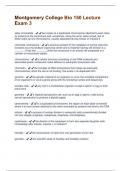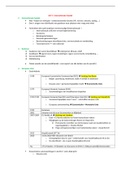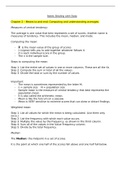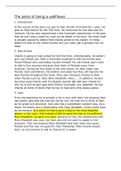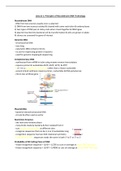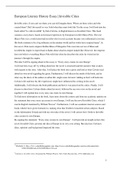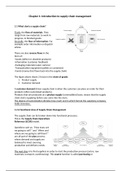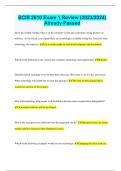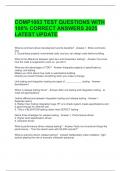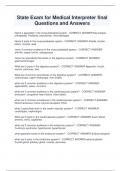Exam 3
sister chromatids - ✔️✔️two copies of a duplicated chromosome attached to each other
by proteins at the centromere and, sometimes, along the arms; when joined, two of
these make up one chromosome. usually separated during mitosis or meiosis II
centrioles, centrosome - ✔️✔️a structure present in the cytoplasm of animal cells that
functions as a microtubule-organizing center and is important during cell division is a
_______. it has two _______, which are structures in an animal cell composed of a
cylinder of microtubule triplets.
chromosome - ✔️✔️a cellular structure consisting of one DNA molecule and
associated protein molecules; looks different in eukaryotic and protein cells
chromatin - ✔️✔️the complex of DNA and proteins that makes up eukaryotic
chromosomes; when the cell is not dividing, this exists in its dispersed form
genome - ✔️✔️the genetic material of an organism or virus; the complete complement
of an organism's or virus's genes along with its noncoding nucleic acid sequences
somatic cells - ✔️✔️any cell in a multicellular organism except a sperm or egg or their
precursors
gametes - ✔️✔️a haploid reproductive cell, such as an egg or sperm; unite during
sexual reproduction to produce a diploid zygote
centromeres - ✔️✔️in a duplicated chromosome, the region on each sister chromatid
where it is most closely attached to the other chromatid by proteins that bind to the DNA
mitosis - ✔️✔️a process of nuclear division in eukaryotic cells conventionally divided
into four stages: prophase, metaphase, anaphase, and telophase.
cytokinesis - ✔️✔️the division of the cytoplasm to form two separate daughter cells
immediately after mitosis, meiosis I, or meiosis II
heredity - ✔️✔️the transmission of traits from one generation to the next
genetics - ✔️✔️the scientific study of heredity and heredity variation

